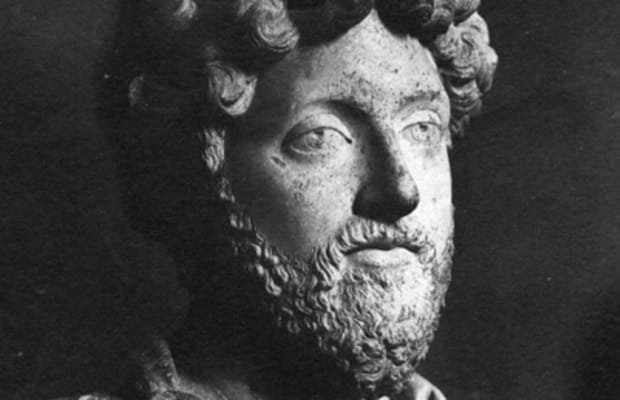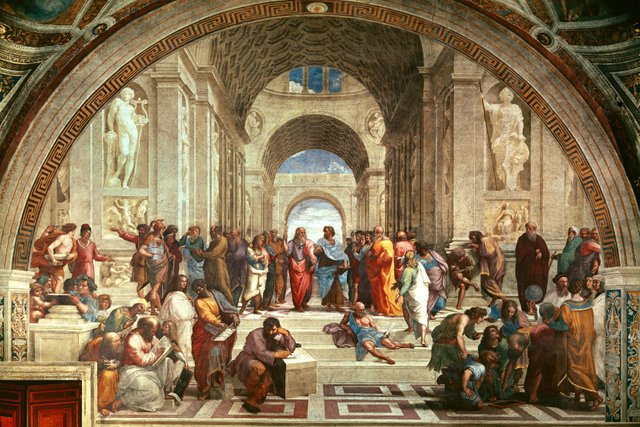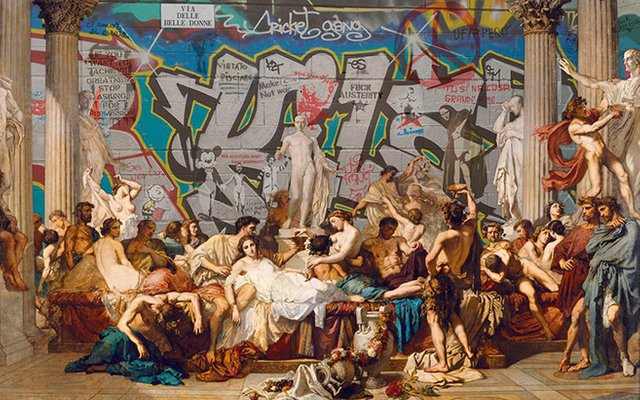
In my research I have been trying to inform myself and gain knowledge on an array of different humanities and philosophies. These fields of study are very interesting to me because they all started out just as ideas that smart people came up with through the process of asking questions, thinking, and listening. Some of these ideas have changed the world, for better or for worse.
I decided to learn about Stoicism because I’ve heard the term thrown around quite a bit but prior to this week have never exactly understood it. Thus, this essay will be all about answering the main question of what stoicism is through answering a handful of sub-questions that all focus on the former question. I will be attempting to answer the questions of what Stoicism is, what the history of Stoicism is, who the original Stoics were, what Stoicism teaches, what the arguments against Stoicism are, what the differences between Stoicism and nihilism are, and how a person can apply Stoicism realistically. Please enjoy.
What is Stoicism?
Stoicism is an ancient philosophy developed by Greek philosophers and thinkers such as Marcus Aurelius, Seneca and Epictetus, among others. The philosophy was created for the purpose of self improvement - as a different, more sophisticated approach for how to live life successfully and blithely.
The word “stoic” is capable of bringing execrable images to the minds of people of something emotionless, boring, and nihilistic. When somebody first hears about the philosophy of Stoicism, that individual may or may not believe that it is a negative thing that only a small minority of academics spend their time talking about, let alone applying the teachings. However, Stoicism is remarkably applicable for average people, which is unique in the world of philosophy because sometimes these ideas are overgeneralized as being just that - ideas, not things that exist in immediate reality
What is the origin of Stoicism?
In roughly 304 BCE a merchant named Zeno wrecked his ship. He supposedly lost everything in this shipwreck, but from this he went to Athens, where he wandered into a bookshop and became impressed by what he would read about philosophy and the ideas of Socrates. From here Zeno was introduced to some prominent philosophers in Greece at the time and was taught and studied. Once he was knowledgeable about different philosophies he started teaching others, and eventually started a school where he taught his own unique ideas along with thinkers that agreed with him. This school was held at a place called the Stoa Poikile, a.k.a. painted porch. Stoicism apparently got its name through being derived from the name of this school.
Stoicism first gained popularity among many different classes and types of people, from men and women, servants and slaves, emperors and wealthy nobility, all of whom were impressed by the philosophy and in search of a better system for prosperity and happiness.
Who were the first Stoics?

There are three Stoics that are important to acknowledge because they are historical examples of what a pure Stoic lifestyle may offer. The first example is Marcus Aurelius, one of the most powerful and successful Roman Emperors and leaders of all time. Aurelius was admired by many, very powerful, and remembered as a man who not only knew about philosophies and could talk about them, but he also followed the ideals professed by them. Marcus Aurelius lived the teachings of Stoicism and would eventually write a book called Meditations about how he dealt with all the stresses of being a leader in times of battle, hunger, plagues, and the overall challenges of the human experience. The locus of this is that Marcus Aurelius was indeed a Stoic, but he was also an incredible, resilient person. It is agreed by some that there must be a correlation between the two that proves, when applied, that Stoicism isn’t a rotten philosophy.
The next prominent Stoic is Seneca, who was a play-wright, philosopher, author, and mentor of the Roman Emperor Nero. Despite Seneca’s faithful mentorship, Nero turned out to be psychotic and would later order Seneca to kill himself in front of his family. But before his death, Seneca remained faithful to tutoring Nero because as a Stoic philosopher he believed that the Stoic does what must be done and what is asked of him, and does not get emotionally unstable when things are difficult.
I will mention here the last preeminent Stoic Epictetus, who was a slave for much of his life before becoming a renowned philosopher. The brief story of Epictetus is filled with resilience and determination to overcome even in the face of great difficulty. Being a slave from birth, Epictetus, who’s original name is not known, grew up and lived under the order of a deranged and dangerous slave owner who, at some point in Epictetus’s slavery period, “twisted” the slave’s leg as a form of punishment or sick pleasure until it broke. Before it broke Epictetus supposedly warned the master that he was taking things too far. After the limb snapped, Epictetus did not cry out or reveal emotion or pain. He simply said to the slave owner, “Didn’t I warn you?” From the time his leg healed to the day he died, Epictetus walked with a limp due to this abuse. But, on the bright side, he would go on to be relieved from the chains of slavery.
After this, he immersed himself in knowledge and philosophy, and eventually became a great teacher and recognized Stoic figure. While some would have chosen to complain and be miserable because of the disability he acquired, Epictetus realized the fundamental power of choice taught in Stoicism and chose to not let the dysfunction plague him. In his own words he said, “Lameness is an impediment to the leg, but not to the will.” His incredible response to this hardship and teachings of Stoicism are an example for many people of the impact that Stoicism can make on a person's life if practiced sincerely.
What are the teachings that the original Stoics followed to become so resilient?
The teachings of stoicism can be summarized into four main values: Bravery, Balance, Justice, and Wisdom. All of these values are aimed at one goal; living life the best way possible.
Bravery: This value centers on willingness to do difficult things. A person must ask themselves seriously if they will choose to grow from the challenges of life. In Stoicism, making the choice to react in ways that are uncomfortable but good is essential. It takes courage to get back up after failing, to react in a calm and collected way, to acknowledge the fact that you will die one day and that your existence is temporary. It can be scary to face opposition, and disheartening. However, through Stoicism people can learn that the best way to view this opposition and these difficult things is to not see them as oppositions, but great opportunities to grow, improve oneself, and come out resilient and glowing with new experience and understanding.
Balance: This virtue works to moderate the others. Too much courage becomes carelessness, too much justice turns into tyranny, too little wisdom is foolishness. In many examples, too much of one thing is bad. Nothing should be done in excess. The fact that balance is a virtue taught by the first Stoics is notable because it shows that they were au courant of the fact that there is a fine line that the other virtues ride along - between something good and something bad. Quoting Aristotle, “We are what we repeatedly do, therefore excellence is not an act, but a habit.” Thus, people should only do things that are beneficial to themselves and those around them, lest they do unhelpful things that become bad habits.
Justice: The following value of Stoicism is one of the most critical in terms of its stance in the hierarchy of importance of the virtues. Justice involves all of the values through the belief that a person must always strive for what is pleasing to the universe. It may take courage to stand up for what’s correct in “God’s” eyes (God can be, in this case, anything that gives a person an incentive to do something naturally good). It will take temperance so that a person does not become obsessed. It will take wisdom to do the fair, just, moral, loyal, God-pleasing thing so that other people will support you in your cause, for example.
Another thought as to why justice as an idea and practice is very significant in Stoicism is because it also provides direction. If you are lost, seek that which is right. Seek the things that you know to be true and work for those things to happen, whatever the cost. The fact that justice is the main virtue in Stoicism may seem strange because Stoicism also seeks reality and acceptance of that which cannot be changed or controlled by the choices of oneself. However, just because some things are seemingly out of a person’s control doesn’t mean that they shouldn’t try to change the negative things in pursuit of something better. Humans should never be dormant, lazy creatures who shy away from doing hard things even if they believe that their existence is incredibly insignificant in the vast view of actuality. “A Stoic sees the world clearly…but also sees clearly what the world can be. And then they are brave, and strategic enough to help bring it into reality.” (Excerpt from The Daily Stoic.)
Wisdom: This is the final core value of Stoicism, which is much like the virtue of justice in the sense that wisdom acts as a sort of glue that connects all the other values. With wisdom, a person seeks understanding and learning through hearkening and watching. The answer to the question of what the best methods concerning application for all the values are is found through experience and knowledge, not through an accumulation of random information. One must be wise about what they learn in order to achieve true wisdom, which is incredibly sustaining and valuable in all aspects of everyday life. A constant desire to learn fuels the true Stoic and is the reason why he/she is a Stoic.
On the other hand, a person with no incentive to change or learn will not take the time to understand why Stoicism may or may not make sense and how to apply it if it does. Great tutors and teachers such as Cato, Epictetus, and Seneca only ever became wise teachers because they always maintained learner mentalities for themselves. This is important to keep in mind.
Contrary to what some people think, Stoicism is strongly against laxity and not caring because one must care to achieve any of the virtues that the philosophy is built upon. An individual must care to learn, become, and improve themselves and the world around them. This is one reason why Stoicism is such a popular philosophy; it’s attainable by regular people who aren’t intellectuals. Anybody can partake in Stoicism and see results.
What are the arguments against Stoicism?

Friedrich Nietzsche is an example of someone who did not concur with Stoicism. Nietzsche, in his book Beyond Good & Evil, talks about how the Stoics created an unnecessary philosophy. He argues that if Stoicism is all about living in accordance with nature, and nature isn’t anything but indifference, injustice, cruelty, and hardships, then doesn’t living in accordance with nature simply mean living life if life is natural? What’s the use in creating a philosophy all about the already existing principles of life itself?
Nietzsche didn’t totally disagree with Stoicism even though some of his understanding may have been through misinterpretation. He sympathized with the story of Epictetus and the notion of a sort of individual Stoicism that involves personal goals and ideals, not the overall philosophy of Stoicism which includes a culture of people discussing their thoughts on the topic and not actually pursuing it. In his own words he seems to have respected Epictetus to some degree as being a slave who was able to bring himself up by his own significant resilience and not let the world take away from him the only thing which he ever truly owned; that which he could control.
Nietzsche admired Epictetus because he was a slave unlike the slaves of Christianity who put their hopes and beliefs in a single, mystical, glorious and powerful God. “Epictetus, on the other hand, neither hopes nor allows his best treasure to be given him—he possesses it already, holds it bravely in his hand, and defies the world to take it away from him. Christianity was devised for another class of ancient slaves, for those who had a weak will and weak reason—that is to say, for the majority of slaves.” Here, when Nietzsche mentions Epictetus’s “best treasure,” perhaps he is referring to a sense of purpose and individual meaning that he argues is provided artificially to Christians from the core of their religious dogma - God.
Another point of view as to why Stoicism isn’t great is that it can be emotionally repressive, which might lead to something negative happening. For instance, when something obstructive occurs that’s not a person's fault, it may feel natural to get angry, openly frustrated, and annoyed. But, with Stoicism a person doesn’t allow these emotions to get in the way of them continuing with the task at hand and completing it. Because that person didn’t have the emotional response that they tried to suppress, then the attitude of change won’t be as automatic and present. Perhaps as a side effect of this, the same negative thing might repeat itself because the proper emotional processes that motivate change didn’t manifest themselves or weren’t permitted to. This idea is the basis for some people’s disbelief in Stoicism.
What are the differences between Stoicism & nihilism?
Oftentimes people confuse the philosophies of Stoicism and nihilism for each other. However, they are not the same things. Existential nihilism, which is what most people consider to be nihilism as a whole (there are actually three different types of nihilism; political, religious, and existential), is the depressing belief that nothing in life means anything - that everything is pointless and the only way to go forward in society is by destroying everything and starting back up with an absolute focus on individual freedom with no restraints or control over anything.
Stoicism, on the other hand, is really a philosophy of self-improvement that surrounds the idea that a person doesn’t need to stress out about things that they don’t actually need to stress out about. A difference between Stoicism and nihilism can thus be seen as the former actively strives for the annihilation of everything because all things are viewed as fundamentally pointless while the latter works towards methods to better live life.
How can a person apply Stoicism realistically?
One thing that a person can begin practicing is to start looking at negative situations as opportunities to grow rather than as inherently bad things. It is only a person's perceptions and opinions that ultimately categorize things as good or bad. It’s important to understand the scary things and to actively practice courage. Acknowledge that the universe is indifferent to your suffering, the world cares not if somebody drowns in a tsunami or is burned to death in a wildfire, and that you will die one day, possibly a very agonizing death that is drawn out and unimaginably painful. It’s not a matter of if bad things will happen to you but when.
These may seem like nihilistic approaches but really they aren’t. What they ultimately do is prepare humans for the hardships of life that are inevitable so that we aren’t shocked or stunned when we’re faced with them. Think through hard, scary things logically, with your head rather than your emotions. Don’t allow your emotions to control and define who you are.
Don’t forget the dichotomy of control in which there are external and outer forces. You control the internal forces. You control what you do and how you react, which, for better or for worse, will come back to you through karma. The acceptance of this fact can make a person feel more at peace and calm because they will not be wasting their time caring about the things that do not matter. They won’t be permitting the automatic temptations towards emotion caused by something they cannot control to exist. Simply be calm, cool, collected, courageous, moral, seeking for what you judge to be right, and constantly learning. If you adopt these attributes you will achieve a Stoic (a term for someone who lives the teachings of Stoicism and thoroughly understands the philosophy) attitude and lifestyle.

Closing words:
Stoicism, with all its history, culture, possible downsides, and principles is nothing more then a useless idea. Really, at the heart of it that’s all it is. Old men talked about it one time, but nobody cares. These ideas are accurate only if the philosophy is used. Stoicism will remain pointless if people don’t decide to apply its teachings in reasonable ways. This essay that I’ve written means nothing if I haven’t learned something from all the research and my ideas aren’t thought out usefully in a way that might teach either my future self or somebody else something worthwhile. I hope that the information in this report has been interesting and that if [the reader] chooses to become a Stoic that it will be important to them for accomplishing that goal.
Opinion:
I’ve learned a lot of sort of significant things and quite a bit of unhelpful, forgettable fragments of information through my journey of research concerning Stoicism. I’m grateful for what I’ve taken in about what Stoicism is and how to apply it and the push backs against it, but all the history that I spent a while reading about hasn’t helped out too much in my life. If I’ve learned anything through trying to learn about Stoicism, it’s that you need to articulate to yourself before researching anything what exactly it is that you want to achieve in your studies.
While seeking knowledge it’s easy for me to justify the unnecessary reading of information as “studying,” or “research,” but I waste a lot of time doing this. I’ve learned that I must learn as much as I can about main, overview topics in as little time as possible rather than spending entire afternoons delving into Seneca’s lung conditions that caused him to live in Egypt for almost ten years. There’s an incredibly vast amount of information on the internet. This can either help or harm you depending on how you choose to navigate the “learning” of that information. Be careful, be wise, as Stoicism teaches.
Sources cited:
I learned what I’ve written about from these main resources: TheDailyStoic.com, ModernStoicism.com, Weltgeist, Internet Encyclopedia of Philosophy, Wikipedia, and various informative videos on YouTube. I also quoted Epictetus, Aristotle, Ryan Holiday from TheDailyStoic, and Friedrich Nietzsche.
